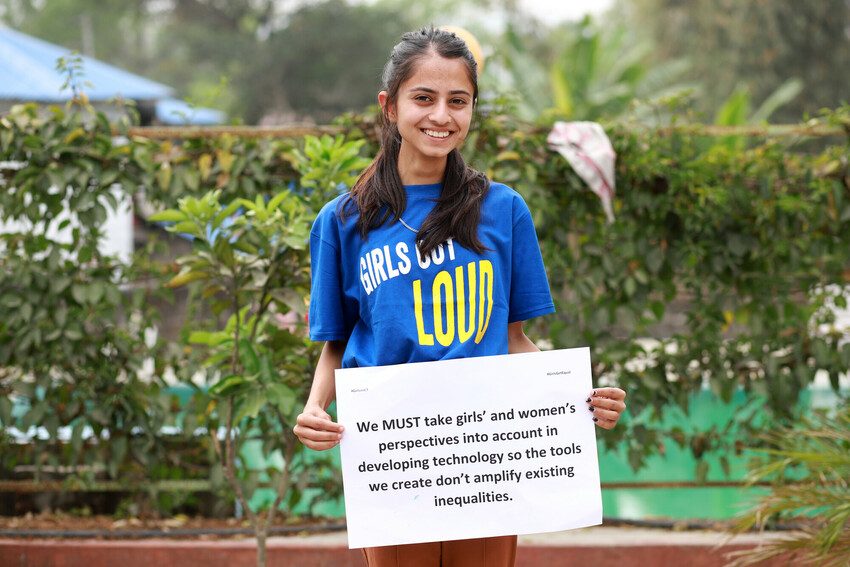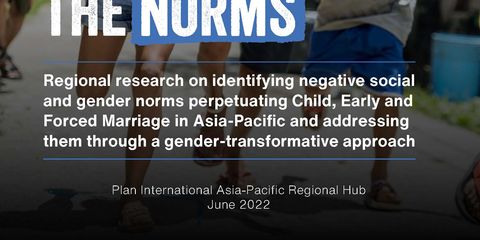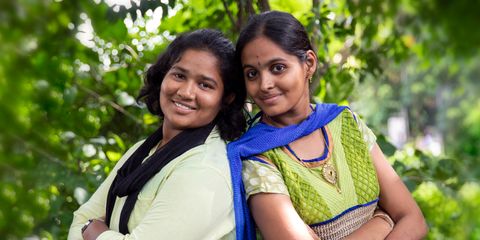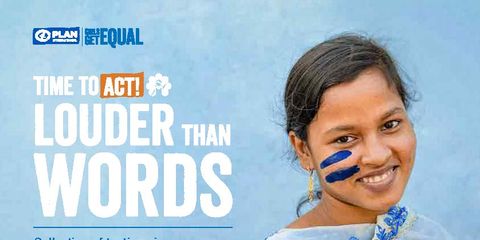Rejecting Menstruation Exile and Empowering Women to Stop Gender Violence Against Them
17 January 2022<strong><span class="has-inline-color has-black-color">Growing up in a traditional Nepali family, Sunita, 18, recalls how her mother was often mistreated, humiliated, and oppressed for the belief that menstrual blood is impure.</span></strong>

These demands placed on her would continue every month throughout her childhood, all because she was on her period.
Now 18, Sunita no longer adheres to the superstitions of her village and has become an outspoken activist against gender violence, like the menstrual exile she has experienced.
Girls in some countries still suffer from menstrual exile, where they aren’t allowed to engage with people during their periods. The superstition is that women not following the restrictions during their period will bring bad luck, death or severe illness to the whole village. This form of gender violence often limits women from exercising any of their rights. A 2018 study found the psychological toll of women who experienced menstruation exile left them feeling impure and abandoned.
“Women suffer a lot in developing countries like Nepal. It is even worse in rural communities where I belong. I had my first period when I was ten years old. I did not know anything about menstruation. I was sent to a place 5 minutes away from my home. I was given pieces of my mother’s old sari to use. I had no idea how to wear it, so I was stained with blood,” explains Sunita.
“The superstition is that women not following the restrictions during their period will bring bad luck, death or severe illness to the whole village. This form of gender violence often limits women from exercising any of their rights.”
These days, Sunita uses her harrowing childhood experiences in her activism as a menstrual health hygiene campaigner. Her activism was aided by joining Girls Out Loud Nepal, a programme supported by Plan International, which provides a safe online space for girls and young women between 13 and 24 to discuss key gender issues. In closed Facebook groups moderated by trained staff, girls are asking questions and discussing topics such as: sexual health and rights, menstruation, gender violence, and self-confidence.
Due to these programmes, she has been able to understand why the experiences she and other females in her village have had are forms of domestic violence.
“Later, I realized that all these are domestic violence. I promised myself to advocate against such violence that adolescent girls face every day and affect their mental health.”
Sunita has continued to use her platform for good, training as a Youth Reporter with Plan International so she can write about equality and the reality of a society that ignores adolescent girls’ issues. She has regularly shared articles and posts about menstruation and gender-based issues through Girls Out Loud and contributed articles for local online news portals.
“I promised myself I would advocate against the violence that adolescent girls face every day which affects their mental health.”
Sunita’s activism began at home. The firstborn in her family, she remembers the mistreatment, humiliation and oppression her mother would experience when growing up.
“My mother was ignored and deprived of nutritious food when she was pregnant with my brother, who is eight years younger than I am. I could not stop raising my voice against such domestic violence.”
She started discussing what she had learned with Girls Out Loud Nepal with her mother and other family members. She taught them about menstrual hygiene and the wrongs of gender-based violence. As a result, she has become a resource for girls and women in her village for clear information on gender equality.
“My fight against gender discrimination will continue until I see adverse change in my community.”
With the support from programmes and her community, she has been given a safe platform to continue her activism, further her studies, and inform other girls and young women of their rights. And her online activism has allowed her to learn and inform others about the perilous nature of online safety.
Sunita’s story emphasizes the importance and success of giving girls space to share, educate and learn when fighting gender violence. Through simple information sharing and learning of one’s rights, she has been able to change the perceptions of older women in her village and ensure younger girls know their rights – preventing them from experiencing the menstrual exile and discrimination she and her mother had to go through.
2021 Asia-Pacific Girls Report
Plan International’s 2021 Asia-Pacific Girls Report reveals how girl activists like Sunita are becoming a necessary force for gender equality in the region. The report, presenting the region’s state of girls’ leadership, finds that girls and young women are working tirelessly to ensure gender-transformative change and social inclusion. Yet, environments in some countries are more enabling than others. Across the region, social and cultural norms continue to contribute to gender inequality and the lack of opportunity.
Categories: Campaigns, Sexual and reproductive health and rights, Youth empowerment


